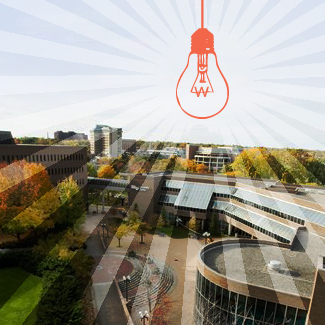by Nic Custer
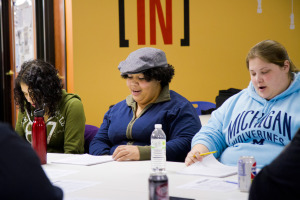
Shop Floor Theatre Company, an ensemble-based theatre company and Innovation Incubator tenant, is preparing to open their initial production, State of Emergency, at the end of February.
The writing team recorded interviews to craft an original script about the effects of Public Act 4, the Emergency Manager law, on the city of Flint. The verbatim play focuses on the one-year period between PA 4’s enactment in the city (November 2011) and its repeal during the recent elections (November 2012). Writers interviewed street-level activists, residents, a councilperson, professors, Mayor Dayne Walling, former-Emergency Manager Michael Brown, a state of Michigan treasury department official and others.
Director and Co-Founder Andrew Morton said Public Act 4 is an urgent issue affecting Flint and the state but he doesn’t feel there have been enough of the necessary dialogues necessary to understand this issue.
Morton said that while the work is directly relevant to the Flint community, it also contributes to a larger, national conversation, especially relating to verbatim and ensemble-based techniques. He mentioned attending a recent Network of Ensemble Theatres conference in New Orleans where he overheard Michael Rohd, a nationally renowned playwright, casually speaking to someone over dinner about the interesting work being done in Flint.
Early on in the process, Shop Floor held unrecorded story circle sessions with community members to gauge their level of knowledge and identify voices that the script writing team wanted to interview in depth. One of these sessions was held in the Innovation Incubator co-working space. University Outreach at UM-Flint coordinates the Innovation Incubator located at the Northbank Center. Learn more about the Incubator at www.umflint.edu/outreach/innovation-incubator.
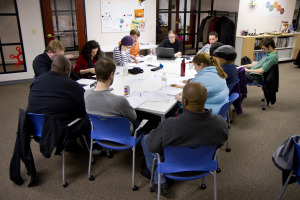
Kendrick Jones, Producer and Co-Founder said that their individual office, located in Northbank 238 next to the co-working space, provides a lot of positives. It is centrally located downtown, so it offers access to the university campus, governmental buildings and the business community. He also appreciated the aesthetics of the Northbank Center. Jones said that the historic and appealing exterior of the building gives other businesses a positive sense of the theatre company because of their professional setting.
The main incubator co-working space has also been utilized by the company for conferences, large meetings, auditions, and for important business meetings with vendors and other theater companies, according to Jones.
“It’s great having a space to work from and have meetings in. It helps us feel that this is a serious business or has the potential to be, not just a hobby done in our spare time,” Morton commented.
Shop Floor is growing and both Morton and Jones said that the space and infrastructure (internet, tables, chairs, use of conference rooms), which University Outreach provides through the Incubator space, is vital to the group’s success. Jones mentioned that several other theatre projects are in the works and the company is already booked through 2015.
Rehearsals began in January, shortly after the completion of the script. The ten-member cast, made up of students, alumni and community members, has used the Vault space in the Northbank Center basement for evening rehearsals.
Shop Floor will present a mid-afternoon preview performance for students and residents at Beecher Community School’s ninth grade academy Randall Coates Auditorium, 1020 W. Coldwater Rd., February 22.
The show officially opens February 23 with a 7 p.m. performance at the UM-Flint Theatre, 303 E. Kearsley St. Shop Floor will have two shows at Flint Community Players, 2462 S. Ballenger Hwy., (March 2, 7 p.m. and March 3, 3 p.m.) and two final performances downtown at the Masonic Temple, 755 S. Saginaw St. (March 8 and March 9, both at 7 p.m.)
All performances are free and followed by talk back sessions and refreshments.
The February 23 performance will be simulcast online through Newplay TV, an online livestreaming channel, specifically created to show new theatre works. Audiences from all over the world have the ability to watch the production live. There is at least one viewing party scheduled to occur in Saginaw and Morton said there may be another set up in Detroit. Check out www.livestream.com/newplay for details.
Jones and Morton gave a live “webinar” tele-conference about the production on February 8 in a joint venture with Michigan State University EDA University Center for Regional Economic Innovation. These lectures generally focus on new ideas being used in Michigan, such as urban food systems, microenterprise development and promoting youth entrepreneurship.
Shop Floor will present at the MSU EDA University Center for Regional Economic Innovation annual summit this fall. They will show video of the performance, give a final report and discuss their process. MSU EDA University Center for Regional Economic Innovation also funded a portion of the production.
This June, Shop Floor has been invited to present at the 2013 Americans for the Arts annual conference in Pittsburgh. Members of the production team will speak about the play and ways to evaluate its larger social impacts.
Jones said he wanted to particularly thank the University Outreach staff: Jonathan Jarosz, Barb Urlaub, Sherry Hayden, Sara McDonnell and Lindsay Stoddard. He said without their patience and support, Shop Floor wouldn’t be where it is today.
Most of Shop Floor’s production costs were paid for by an initial Ruth Mott Foundation grant. The foundation approached Morton and Jones to create a verbatim theatre company after the success of last year’s production, Embers: the Flint Fires Verbatim Theatre Project, which through similar techniques examined the glut of Flint arsons in 2010.
Visit www.shopfloortheatre.com for more information.
 , will provide opportunities for parents and other caregivers to work flexible hours from home while raising their children. According to research, up to 43% of highly qualified women risk their careers when they take leaves of absence to raise their children. Jobs 4 Moms would like to change that statistic.
, will provide opportunities for parents and other caregivers to work flexible hours from home while raising their children. According to research, up to 43% of highly qualified women risk their careers when they take leaves of absence to raise their children. Jobs 4 Moms would like to change that statistic.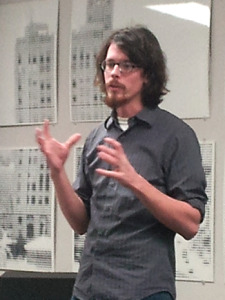 This is the central premise behind a so called “elevator pitch.” Flint residents will have two opportunities to pitch their big ideas in early 2015. First, UM-Flint’s School of Management is holding a Business Plan Competition to celebrate its 40th anniversary. The winning student or alum will receive a $5,000 grand prize. The second competition, sponsored by Michigan State University’s Spartan Innovations, is called Greenlight Flint. This competition is open to anyone in the community as long as their business is less than one year old. The grand prize will also be $5,000 but there will be an additional $5,000 in prizes for second place, third place and crowd favorite. First place will also receive automatic entry to the statewide Greenlight Michigan competition in East Lansing to compete for a $25,000 prize.
This is the central premise behind a so called “elevator pitch.” Flint residents will have two opportunities to pitch their big ideas in early 2015. First, UM-Flint’s School of Management is holding a Business Plan Competition to celebrate its 40th anniversary. The winning student or alum will receive a $5,000 grand prize. The second competition, sponsored by Michigan State University’s Spartan Innovations, is called Greenlight Flint. This competition is open to anyone in the community as long as their business is less than one year old. The grand prize will also be $5,000 but there will be an additional $5,000 in prizes for second place, third place and crowd favorite. First place will also receive automatic entry to the statewide Greenlight Michigan competition in East Lansing to compete for a $25,000 prize.

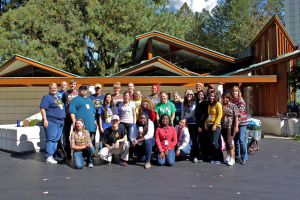
























 Dr. Bruce Barringer of Oklahoma State University, who authored the bible of entrepreneurship, spoke about “the nuts and bolts of starting a business” to a packed session. He generously provided an online link to his upcoming book The First 100 Days of Your Business at
Dr. Bruce Barringer of Oklahoma State University, who authored the bible of entrepreneurship, spoke about “the nuts and bolts of starting a business” to a packed session. He generously provided an online link to his upcoming book The First 100 Days of Your Business at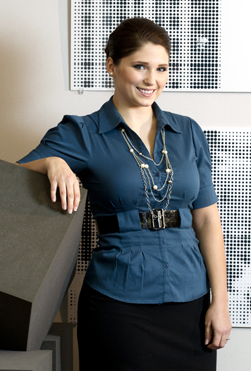
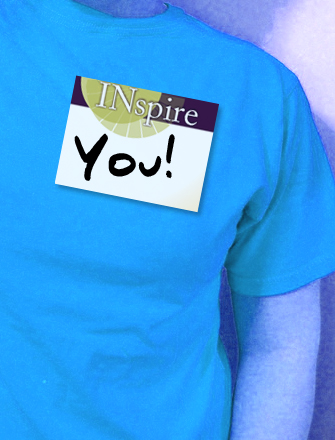 University Outreach’s innovation Incubator is leading the way for innovation and creativity with the INspire Conference on Social Entrepreneurship on Friday, October 12, 2012.
University Outreach’s innovation Incubator is leading the way for innovation and creativity with the INspire Conference on Social Entrepreneurship on Friday, October 12, 2012.